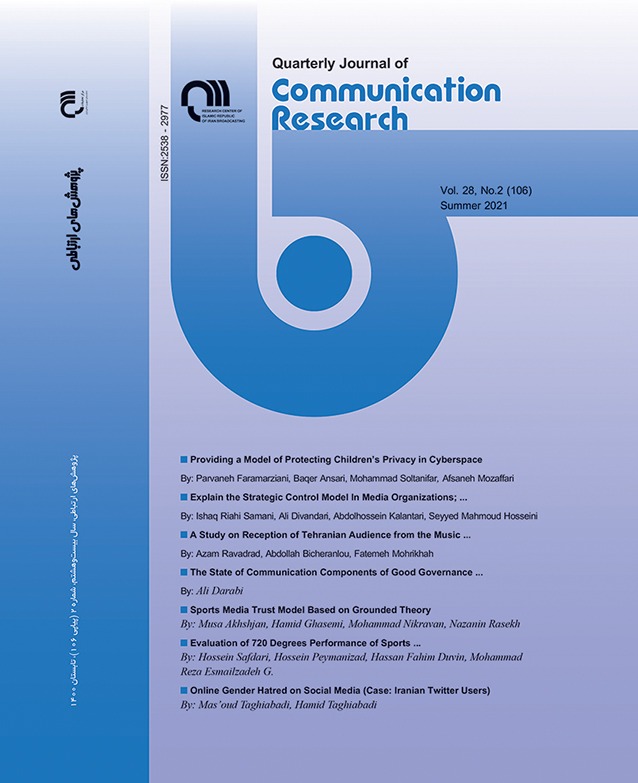Document Type : Original Article
Authors
1 Communication Science
2 International Vice Chancellor of Islamic Azad University, Afganistan Branch
Abstract
Today, we can see increasing problems such as gender-based hate speech and xenophobia, with the spread of social media and the democratization of cyberspace access. The aim of the article is the dominant discourse strategies in reproducing anti-feminist stereotypes on Twitter by Iranian users and to study whether the Twitter space is agonistic or antagonistic. The theoretical framework of The research is "symbolic annihilation of women" with regard to Chantal Muffe’s point of view. The research conducted by the method of discourse analysis of Ruth Wodak and the samples were selected by purposeful sampling way from tweets published on Twitter. The results showed that misogyny occurs in terms of housekeeping, women restraint, abusive sexist remarks, attributing vulgar traits, irrationality, and gender stereotypes about women. Although Twitter has been able to make the space competitive due to its interactivity, the content published in it shows the depth of the antagonistic dimension of politics, which gives politico-gender conflicts a hostile aspect. In fact, Twitter has not only failed to stabilize gender equality and dialogue, but has also strengthened the antagonistic atmosphere that, according to Muff, indicates a failure in the realization of democracy. In other words, this medium is incapable of managing space, and the male / female duality, as the "other", has intensified in it.
Keywords
Main Subjects

